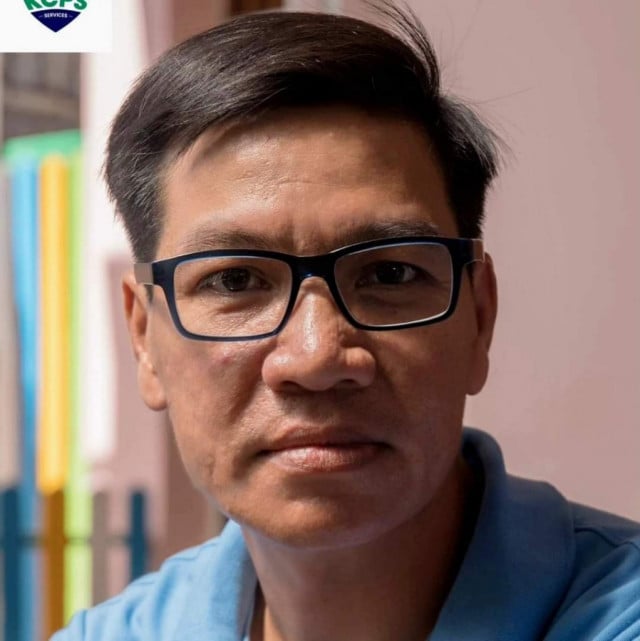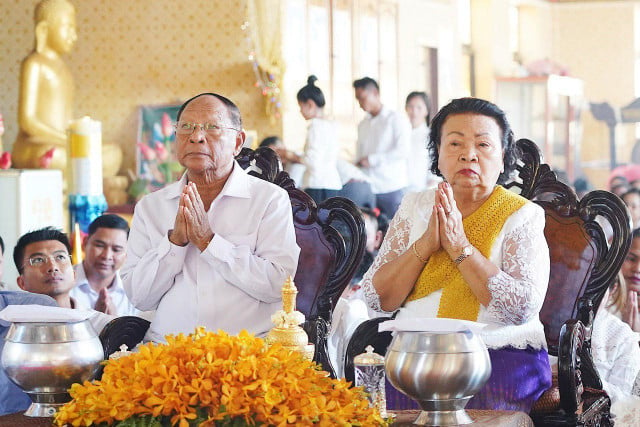Cambodia’s Mental Health Issues Need Greater Attention

- Sao Phal Niseiy
- September 6, 2020 4:46 AM
The need for more professionals and services is especially urgent in view of the pandemic, according to the president of the Cambodia Association for Counsellors and Psychologists
Hoeur Sethul is a counselling psychologist, the founder of Khmer Counselling Psycho-Education Services (KCPS) and president of the Cambodia Association for Counsellors and Psychologists (CACP). He obtained his Bachelor of Arts in Psychology from the Royal University Phnom Penh and a Master in Counselling Psychology from De La Salle University in the Philippines. Based on his 20 years of experience in working with local and international NGOs and private companies in Cambodia, Sethul shared, during an interview, his views on the mental health issues that have surfaced in the country due to the pandemic, the challenges this presents and what should be done to assure people’s mental well-being.
Sao Phal Niseiy: As president of the Cambodia Association for Counsellors and Psychologists, would you share with us your views on the current mental-health situation in the country?
Hoeur Sethul: There is a shortage of mental health services in Cambodia. The third strategic plan 2016-2020 of the Ministry of Health does not include mental healthcare and makes no specific mention of the need to develop mental health services. The national budget for mental healthcare is less than 1 percent [of the Health Ministry budget]. Since 1994, the country has had around 60 psychiatrists and 40 to 45 psychiatric nurses. The numbers do not appear to have increased much since the course provided by University of Health Sciences in Phnom Penh was suspended several years ago.
There are no specific statistics regarding counsellors and psychologists in the country. The Royal University of Phnom Penh (Department of Psychology) has allegedly trained 1,000 students in general psychology, but the majority of them inevitably ends up working in a different field of service. The University of Puthisastra has recently set up two graduate programs leading to Western-standard diplomas in professional health counseling. However, even though they are very successful, there is a possibility of the programs being suspended for the foreseeable future due to a lack of financial support.
Drug and alcohol use are contributing factors to the psychological problems in our society today. This may be traced back to the end of the civil war [in 1991]. The global crisis caused by the COVID-19 pandemic now adds to the factors negatively impacting mental health in Cambodia. The escalation of violence and traffic accidents are also indicative of the drug addiction and alcohol consumption issues we face. Studies show that those addicted to drugs and alcohol are more prone to mental wellbeing problems and mental illness. The prevalence of suicide is approximately 13 to 14 per 100,000 people in the country, which is very high in Southeast Asia. A recent study before the pandemic showed that the rate of depression was 16.7 percent, anxiety 27.4 percent and post-traumatic stress disorder (PTSD) 7.6 percent. Overall, no less than 1.5 million people are living with a variety of mental health problems. The number is likely to increase due to the global crisis caused by COVID-19.
_1599367579.jpeg)
Sao Phal Niseiy: How would you describe people’s attitude and perception toward mental health issues in the country?
Hoeur Sethul: There still is a general lack of understanding about mental health issues in Cambodia, which leads to stigma and discrimination against people with mental illness. Cambodians often refer to those with mental health problems as “crazy” and generally have a very negative attitude. There is great fear of mental illness within the society, which could be addressed with greater education and understanding. Most Cambodians perceive mental illness as something that is influenced by bad spirits (khmaoch chaul) rooted in their belief system. Therefore, they often look for traditional healers rather than a scientifically proven intervention or medical treatment.
It is therefore very important to raise awareness regarding the concept of mental health, thus empowering people by having a better understanding of mental health, service provision and the available interventions. Sharing our professional knowledge with leaders, would support them in their important decisions regarding the need for mental health services in the nation.
Sao Phal Niseiy: The COVID-19 pandemic has created economic and social fallout that affects many people. How do you see the coronavirus impact on the mental wellbeing of Cambodians?
Hoeur Sethul: The escalation of mental health issues is a worldwide concern due to the pandemic crisis. The post-crisis period will also have a prolonged ripple effect, which may include general anxiety about COVID-19 transmission and negative impact on the economy, which is already apparent. People are more at risk of psychological distress and trauma due to the uncertainties in the world. The crisis will continue as we try to find a way forward once the pandemic is contained. There will be ongoing economic hardships, especially for people in developing countries such as Cambodia. This is also due to the extensive NGO support we heavily rely on. The World Health Organization is calling for a prevention and intervention plan during this difficult time. We must be proactive and plan ahead by enhancing mental health service provision.
Sao Phal Niseiy: Why developing a mental healthcare system is vital for our society today and for the future? And what obstacles do you see to mental healthcare in our country?
Hoeur Sethul: We can anticipate that, in a nation, high rates of mental health problems will contribute to an increase in social unrest, decreased labor productivity and therefore create a huge burden on the government to take responsibility. Better mental health in the country would improve productivity and this would encourage economic growth. Investing in mental health services would be “cost effective” and produce added value as communities would be better able to relate to one another.
By not making mental health a priority in line with the World Health Organization, the lack of human resources and inadequate national funding will continue. However, if we compare with the nation’s human resources 20 years ago, we do appear to be making some—even if slow—progress. If leaders were to support professionals in uniting their mental health expertise in the country, we could then work much more effectively.
Sao Phal Niseiy: Who can take part in promoting mental healthcare services in our country?
Hoeur Sethul: Our government must initiate any action for it to have a nationwide impact. But we all have a role to play in taking responsibility for the fate of our entire nation. Selfishness does not make this nation prosperous. All Cambodians must ask themselves what they personally have done for the nation rather than blaming each other. As president of the Cambodia Association for Counsellors and Psychologists (CACP), I also have a role to play in promoting mental health services in Cambodia, as do all the CACP members.
Sao Phal Niseiy: Cambodia currently does not have mental health legislation and lacks human resources in the field of mental health. What should Cambodia do in order to effectively and speedily advance mental health policy and human resources in this sector such as producing more psychologists?
Hoeur Sethul: Things must start one step at a time, but we need to move forward. We also need to know what our priorities are to make progress in improving mental health service provision. To swiftly move the process forward, we require mental health policies, benchmarking of professional standards, ethical guidelines, and investment to produce more human resources. As a priority, strengthening collaboration between existing mental health stakeholders is crucial.
Sao Phal Niseiy: What would happen if we did not act fast enough to address the mental health challenges or prevent a mental health crisis?
Hoeur Sethul: Failure to intervene as a matter of urgency will fuel a major crisis in the future. We as adults and leaders are role models for youth. Currently, behavioral problems among young people such as disrespect of the rules, violence and not embracing positive social norms are already very evident. Our young people are the leaders and foundation of tomorrow’s society. If we do not improve our nation’s mental health, we will all have to live with the negative consequences. We need a healthier nation and there is obviously “No physical health without mental health” as the World Health Organization points out.















